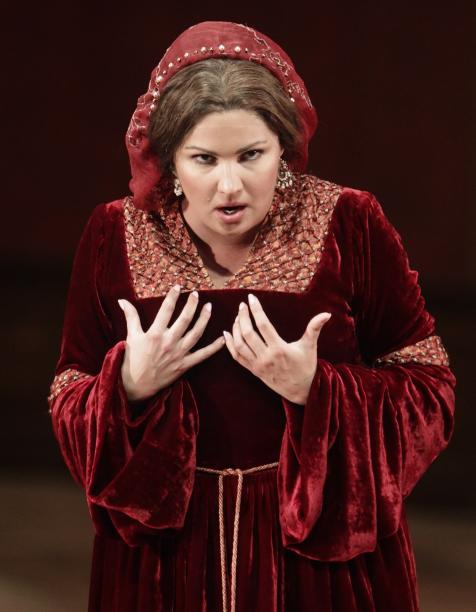Stunning Nina Stemme Strauss Salome Prom 58. Full review in Opera Today by Robert Hugill
"The problem with Salome (written in 1905), is that though premiered barely a century ago it dates from an era of different performing styles. Dramatic sopranos had voices which were more lithe, more narrow in focus. Orchestras were generally quieter, with narrower bore brass and gut strings, and the orchestral sound a lot less dense. Production values were more forgiving, Audiences didn't generally worry about whether the heroine looked 16. But early sopranos in the role would probably sound a lot younger, to our ears. Nowadays, both singers and directors frequently move the character into maturity."
 "The remarkable thing about Nina Stemme's account of the title role
was the wonderful brightness and freshness that she brought to the vocal
line. Singing with a lovely, fluid sense of line, this was a singer who
really did link this music to the Strauss of the songs and the later
operas. There wasn't a screamed note the whole evening, and she seemed
to be able to encompass the whole role whilst preserving focus and
flexibility. As Brünnhilde, Stemme does not have a huge voice compared
to some of the Brünnhildes of the past, but this is an advantage as
Salome.She both looked and sounded young. From the moments of her first
entry (throughout she was off the book, and fully acted), it was clear
that this was a petulant, selfish teenager. Salome's naivety and
inexperience came out in Stemme's voice and her body language. It was
wonderful to see and hear the way petulance gave way to desire and more;
the typical teenager reaction of becoming obsessed with something you
are not allowed to have."
"The remarkable thing about Nina Stemme's account of the title role
was the wonderful brightness and freshness that she brought to the vocal
line. Singing with a lovely, fluid sense of line, this was a singer who
really did link this music to the Strauss of the songs and the later
operas. There wasn't a screamed note the whole evening, and she seemed
to be able to encompass the whole role whilst preserving focus and
flexibility. As Brünnhilde, Stemme does not have a huge voice compared
to some of the Brünnhildes of the past, but this is an advantage as
Salome.She both looked and sounded young. From the moments of her first
entry (throughout she was off the book, and fully acted), it was clear
that this was a petulant, selfish teenager. Salome's naivety and
inexperience came out in Stemme's voice and her body language. It was
wonderful to see and hear the way petulance gave way to desire and more;
the typical teenager reaction of becoming obsessed with something you
are not allowed to have."
Read the full review here in Opera Today.
At left, Astrid Varnay's Salome in bra size 60LLL
"The problem with Salome (written in 1905), is that though premiered barely a century ago it dates from an era of different performing styles. Dramatic sopranos had voices which were more lithe, more narrow in focus. Orchestras were generally quieter, with narrower bore brass and gut strings, and the orchestral sound a lot less dense. Production values were more forgiving, Audiences didn't generally worry about whether the heroine looked 16. But early sopranos in the role would probably sound a lot younger, to our ears. Nowadays, both singers and directors frequently move the character into maturity."
Read the full review here in Opera Today.
At left, Astrid Varnay's Salome in bra size 60LLL



%2BChild%2B(Khatouna%2BGadelia)%2BChinese%2BCup%2B(Elodie%2BM%C3%A9chain)Credit%2BSimon%2BAnnand-1.jpg)




